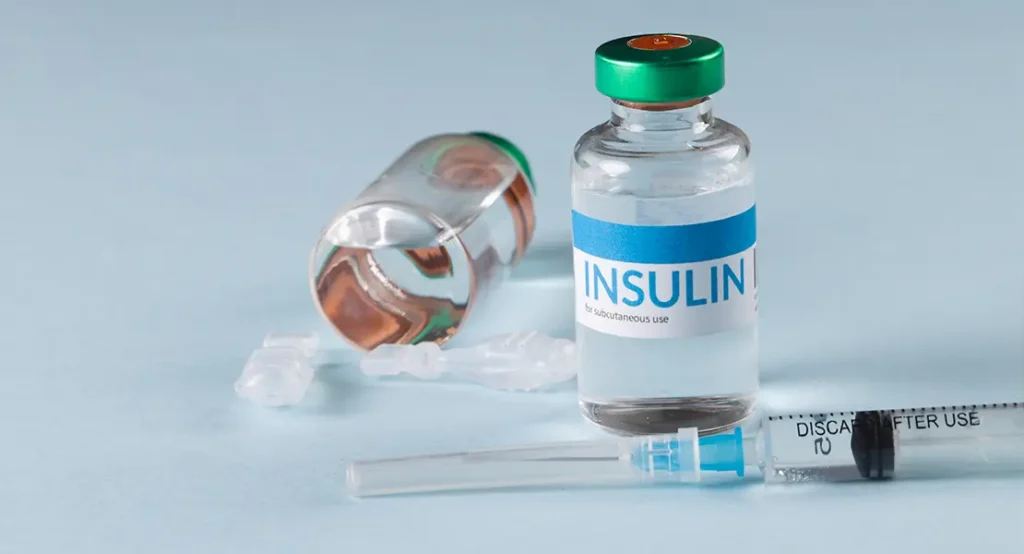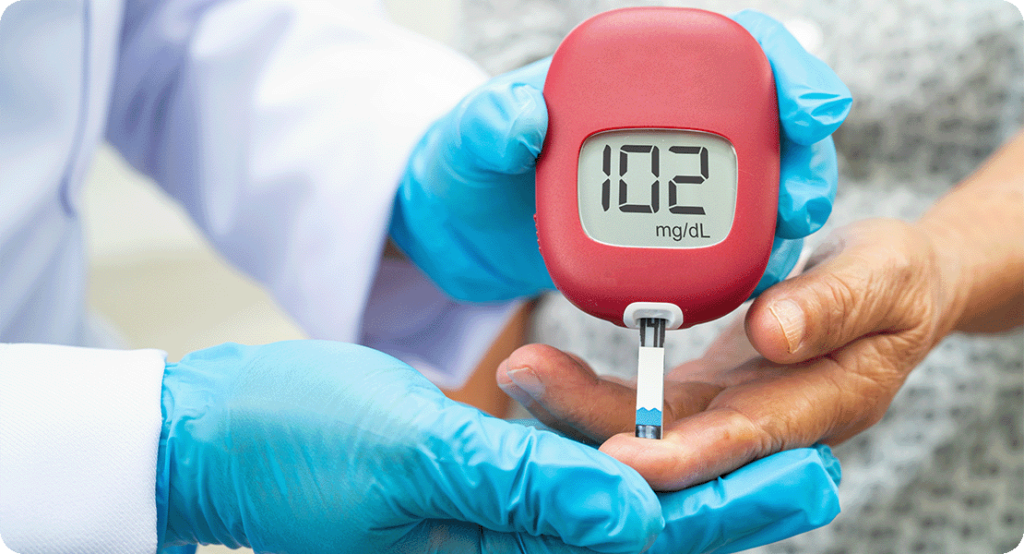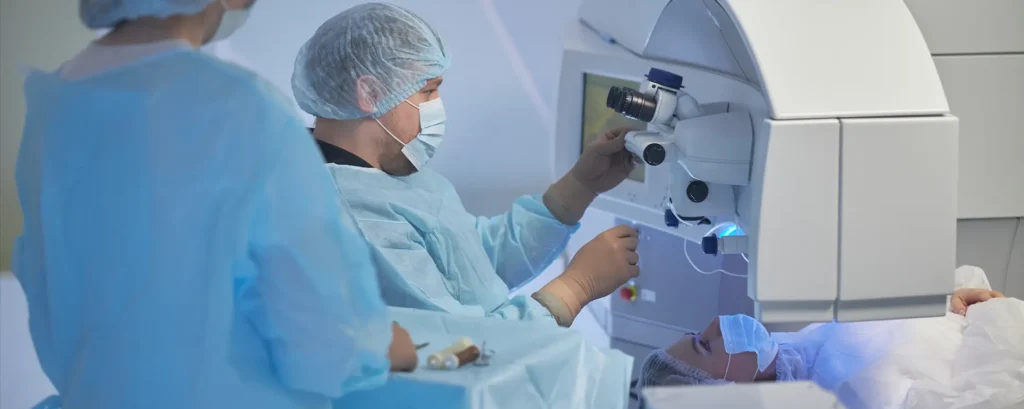If you live with diabetes and take insulin, planning for cataract surgery can feel a little daunting. You’re not just thinking about your eyesight — you’re also balancing your blood sugar, fasting requirements, and the adjustments needed on the day of surgery. Cataract surgery itself is usually straightforward, but when you add insulin into the mix, there are important considerations to get right. The good news is that thousands of people with diabetes safely undergo cataract operations every year, and with careful preparation, you can too.
In this article, we’ll walk step by step through what you need to know about managing insulin when preparing for cataract surgery. We’ll explore how your usual routine might be adjusted, why blood sugar stability is so important during and after the operation, and what questions to ask your healthcare team in advance. Think of it as a guide to help you feel informed and reassured about the process.
Why Cataract Surgery and Insulin Management Require Careful Planning
Cataract surgery may be one of the most common eye procedures, but diabetes changes the way your body responds to fasting, stress, and healing. Insulin helps regulate glucose, but when you’re asked not to eat before surgery, the risk of both hypoglycaemia (low blood sugar) and hyperglycaemia (high blood sugar) increases. Too little insulin and your glucose levels may rise to unsafe levels; too much and you may risk a dangerous drop.
Anaesthetists, surgeons, and diabetic specialists all work together to make sure your insulin schedule is safe for the day of surgery. Unlike many operations, cataract surgery is often performed under local anaesthetic with light sedation rather than full general anaesthetic. This makes things simpler in some ways, but you still need a personalised plan to balance your medication with fasting instructions.
Your body’s response to stress also matters. Even minor surgery can trigger hormonal changes that raise blood sugar. Without the right balance of insulin and food, this can complicate recovery and healing. That’s why managing insulin around the time of cataract surgery is not just about preventing immediate blood sugar swings but also about supporting long-term eye health.
Fasting Before Surgery: How It Affects Blood Sugar
Before most operations, including cataract surgery, patients are asked to fast for several hours. Typically, this means no solid food for six hours before the procedure, although clear fluids may be allowed until closer to the time. For people with diabetes, fasting can quickly tip the balance between stable glucose and a dangerous low.
If you normally inject insulin with meals, fasting means your routine is interrupted. A common adjustment is to reduce or withhold short-acting mealtime insulin because you won’t be eating. Long-acting basal insulin, however, is often continued at a slightly reduced dose to prevent ketone build-up and severe hyperglycaemia. The exact plan depends on your usual regimen — whether you’re on multiple daily injections, a basal-bolus routine, or using an insulin pump.
Your healthcare team will also advise you on monitoring your blood sugar more closely on the morning of surgery. This might mean testing more often than usual, carrying glucose tablets, and letting the surgical team know if you feel shaky, sweaty, or faint. Communication is key — if your sugar is too low or too high when you arrive, surgery may need to be delayed until it stabilises.
Adjusting Insulin on the Day of Surgery

Managing insulin on surgery day is highly individual. The key principle is to avoid extremes of blood sugar while maintaining enough insulin to keep your body safe. Here are a few common approaches:
- Basal insulin users (such as those on Lantus, Levemir, or Tresiba) may be advised to take their usual evening dose the night before, but reduce the morning dose slightly. This keeps background insulin in place while lowering the risk of hypos during fasting.
- Mealtime insulin users (such as those on Humalog, Novorapid, or Apidra) are generally told to omit their morning dose because no food will be eaten.
- Insulin pump users often continue their basal rate but may reduce it slightly, pausing bolus doses until eating resumes.
- Mixed insulin users (such as those on Humulin M3 or Novomix) may be advised to skip the morning injection altogether, as it contains both rapid-acting and intermediate insulin.
Your exact schedule will depend on your usual insulin type, your average glucose control, and the time of day the surgery is planned. Morning operations are usually preferred for people with diabetes so fasting time is minimised.
Monitoring Blood Sugar During Surgery
During cataract surgery, your blood sugar levels may be monitored by the surgical team. Because the operation is relatively short — often 20 to 30 minutes — and usually performed under local anaesthetic, large swings are less common. Still, it’s important to check levels before, possibly during, and after the procedure.
Some hospitals may place a small cannula in your arm so that glucose or insulin can be given if needed. Others rely on finger-prick testing and rapid response if symptoms appear. If you use a continuous glucose monitor (CGM), you should ask whether you can keep it on during the procedure. In most cases, this is possible, and it provides reassurance that your sugar isn’t drifting too far from target.
Maintaining blood sugar in a safe range helps protect not just your immediate wellbeing but also your recovery. Poorly controlled glucose during surgery increases the risk of infection and delays healing, particularly in the delicate tissues of the eye.
Postoperative Insulin Management and Recovery
After surgery, your usual insulin routine can usually be resumed, though you may need to make small adjustments depending on how soon you’re eating again. Some people feel slightly nauseous after sedation, while others may be eager to eat normally within a few hours.
Once you’re back on your regular meals, you’ll likely restart your standard mealtime insulin. If you were advised to reduce your basal insulin before surgery, your next scheduled dose will usually return to normal. It’s important to continue frequent blood sugar checks for the first 24–48 hours, as the stress of surgery and changes in appetite may affect your usual patterns.
Recovery from cataract surgery is typically smooth, but maintaining stable blood sugar helps your eye heal cleanly and reduces the chance of infection. Because diabetes can slow wound healing, your surgeon may also prescribe antibiotic or anti-inflammatory drops for a little longer than average. Following these instructions carefully gives your eye the best chance to recover quickly.
Long-Term Considerations for Diabetic Patients

Beyond the immediate day of surgery, managing your diabetes is vital for the long-term success of your cataract operation. High blood sugar over time can contribute to cataract development, as well as other eye conditions such as diabetic retinopathy. Keeping your glucose in a safe range, attending follow-up appointments, and protecting your eyes from infection all play a role in maintaining vision after surgery.
Some patients notice improved quality of life after cataract removal — better sight makes it easier to exercise, prepare healthy meals, and manage diabetes overall. But the link goes both ways: looking after your diabetes supports your vision. This is why your healthcare team sees your cataract surgery as part of a bigger picture of diabetes care, not just an isolated event.
Questions to Ask Your Healthcare Team
- Should I reduce or skip any insulin doses before surgery?
- Will my procedure be scheduled for the morning to minimise fasting?
- How will my blood sugar be monitored during the operation?
- Can I keep my continuous glucose monitor or insulin pump on during surgery?
- What should I do if my blood sugar is too high or low on arrival?
- How soon after surgery can I resume my usual diet and insulin routine?
- Are there extra precautions for preventing infection because I have diabetes?
- Should my follow-up appointments be more frequent?
Asking these in advance helps you feel confident and ensures your surgical team is prepared for your individual needs.
FAQ Section

1. Can I take my insulin as normal before cataract surgery?
Not usually. Because you’ll be fasting, your insulin schedule will likely need adjusting to reduce the risk of low blood sugar. Short-acting mealtime insulin is often omitted on the morning of surgery, while long-acting basal insulin may be continued at a reduced dose. Your doctor will give you clear instructions based on your individual regimen.
2. Why is it important to control blood sugar before cataract surgery?
High or low blood sugar during surgery can cause serious complications. Poor control raises the risk of infection, delays wound healing, and may make anaesthesia less safe. Stable glucose ensures your body is in the best possible condition to cope with the stress of the operation and recover smoothly afterwards.
3. What happens if my blood sugar is too low on the day of surgery?
If your blood sugar drops too low before surgery, the team may give you glucose to bring it back to a safe level. In some cases, the operation may be delayed until stability is restored. This is why it’s important to test your sugar before arriving and to let staff know if you feel unwell.
4. Can I keep my insulin pump on during cataract surgery?
In most cases, yes. Cataract surgery is performed under local anaesthetic, and there’s usually no need to remove your insulin pump. However, you may be asked to reduce your basal rate temporarily and to avoid bolus doses until you’re eating again. Always confirm this with your diabetes team and anaesthetist.
5. How is blood sugar monitored during cataract surgery?
Blood sugar is usually checked before and after the operation, and sometimes during if the procedure takes longer than expected. Some patients can continue using their continuous glucose monitor throughout the surgery. If you don’t have one, staff may do finger-prick tests to make sure your levels remain safe.
6. What should I do about insulin if my cataract surgery is in the afternoon?
Afternoon surgeries can make fasting more difficult for people with diabetes. You may be asked to adjust both your morning and lunchtime insulin to prevent hypos. In some hospitals, morning slots are prioritised for diabetic patients to avoid this issue. If your surgery is later in the day, be sure to get detailed instructions in advance.
7. Does insulin affect recovery after cataract surgery?
Indirectly, yes. Insulin itself doesn’t slow recovery, but poorly controlled blood sugar can delay wound healing and raise infection risk. By managing your insulin correctly and keeping glucose stable, you’ll give your eye the best chance to heal quickly and cleanly.
8. When can I resume eating and normal insulin doses after cataract surgery?
You can usually eat within a few hours of the operation once any sedation has worn off. At that point, you’ll restart your normal mealtime insulin. If your basal insulin was reduced before surgery, your next scheduled dose will usually return to its normal level.
9. Do I need extra follow-up appointments because I have diabetes?
Often, yes. People with diabetes may be reviewed more closely after cataract surgery to check for signs of infection, delayed healing, or changes in diabetic retinopathy. Your ophthalmologist may suggest additional check-ups compared with non-diabetic patients.
10. Is cataract surgery riskier for people on insulin?
Cataract surgery is safe for people with diabetes, but it does carry some extra considerations. The main risks are related to blood sugar swings, slower healing, and a slightly higher chance of infection. With careful insulin management and close monitoring, these risks can be minimised and the outcome is usually very good.
Final Thoughts
Having cataract surgery when you’re on insulin doesn’t need to be overwhelming. With the right preparation, careful adjustments, and close monitoring, the procedure can be carried out safely and smoothly. The key is open communication: let your surgeon and anaesthetist know about your insulin regimen, follow their instructions about fasting and medication adjustments, and keep checking your blood sugar before and after the operation.
Thousands of people with diabetes successfully undergo cataract surgery every year. At London Cataract Centre, we understand the additional planning required when you’re managing insulin. Our team will work with you to ensure your blood sugar is well controlled before, during, and after surgery, so you can look forward to clearer vision while keeping your diabetes well-managed throughout the process.
References
- Centre for Perioperative Care (CPOC) (2021; updated 2023) Guideline for perioperative care for people with diabetes mellitus undergoing elective and emergency surgery. London: CPOC. Available at: https://www.cpoc.org.uk/sites/cpoc/files/documents/2024-05/CPOC-DiabetesGuideline2023.pdf (Accessed 14 August 2025).
- Kumar, C.M., Hobbs, F.D.R. and Pandit, J.J. (2016) ‘Glycaemic control during cataract surgery under loco-regional anaesthesia: a growing problem and we are none the wiser’, British Journal of Anaesthesia, 117(6), pp. 687–691. doi:10.1093/bja/aew305. Available at: https://academic.oup.com/bja/article/117/6/687/2671097 (Accessed 14 August 2025).
- Woo, J.H., Ng, W.D., Salah, M.M., Neelam, K., Au Eong, K.-G. and Kumar, C.M. (2016) ‘Perioperative glycaemic control in diabetic patients undergoing cataract surgery under local anaesthesia: a survey of practices of Singapore ophthalmologists and anaesthesiologists’, Singapore Medical Journal, 57(2), pp. 64–68. doi:10.11622/smedj.2016029. Available at: https://pmc.ncbi.nlm.nih.gov/articles/PMC4759376/ (Accessed 14 August 2025).
- Crowley, K., O’Sullivan, P., Healy, J. et al. (2023) ‘Current practice in the perioperative management of patients with diabetes mellitus: a narrative review’, British Journal of Anaesthesia. doi:10.1016/j.bja.2023.02.039. Available at: https://pmc.ncbi.nlm.nih.gov/articles/PMC10375498/ (Accessed 14 August 2025).
- Tinsley, S. and Frank, C. (2024) ‘Perioperative management of type 2 diabetes mellitus’, The Pharmaceutical Journal, 27 February. Available at: https://pharmaceutical-journal.com/article/ld/perioperative-management-of-type-2-diabetes-mellitus (Accessed 14 August 2025).

